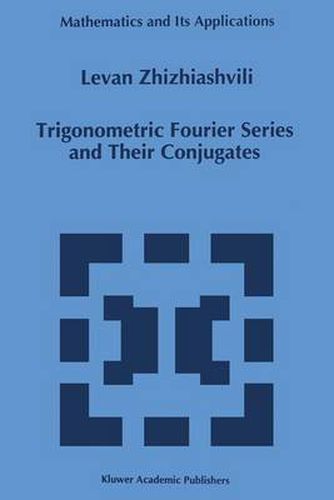Readings Newsletter
Become a Readings Member to make your shopping experience even easier.
Sign in or sign up for free!
You’re not far away from qualifying for FREE standard shipping within Australia
You’ve qualified for FREE standard shipping within Australia
The cart is loading…






This title is printed to order. This book may have been self-published. If so, we cannot guarantee the quality of the content. In the main most books will have gone through the editing process however some may not. We therefore suggest that you be aware of this before ordering this book. If in doubt check either the author or publisher’s details as we are unable to accept any returns unless they are faulty. Please contact us if you have any questions.
Research in the theory of trigonometric series has been carried out for over two centuries. The results obtained have greatly influenced various fields of mathematics, mechanics, and physics. Nowadays, the theory of simple trigonometric series has been developed fully enough (we will only mention the monographs by Zygmund [15, 16] and Bari [2]). The achievements in the theory of multiple trigonometric series look rather modest as compared to those in the one-dimensional case though multiple trigonometric series seem to be a natural, interesting and promising object of investigation. We should say, however, that the past few decades have seen a more intensive development of the theory in this field. To form an idea about the theory of multiple trigonometric series, the reader can refer to the surveys by Shapiro [1], Zhizhiashvili [16], [46], Golubov [1], D'yachenko [3]. As to monographs on this topic, only that ofYanushauskas [1] is known to me. This book covers several aspects of the theory of multiple trigonometric Fourier series: the existence and properties of the conjugates and Hilbert transforms of integrable functions; convergence (pointwise and in the LP-norm, p > 0) of Fourier series and their conjugates, as well as their summability by the Cesaro (C,a), a> -1, and Abel-Poisson methods; approximating properties of Cesaro means of Fourier series and their conjugates.
$9.00 standard shipping within Australia
FREE standard shipping within Australia for orders over $100.00
Express & International shipping calculated at checkout
This title is printed to order. This book may have been self-published. If so, we cannot guarantee the quality of the content. In the main most books will have gone through the editing process however some may not. We therefore suggest that you be aware of this before ordering this book. If in doubt check either the author or publisher’s details as we are unable to accept any returns unless they are faulty. Please contact us if you have any questions.
Research in the theory of trigonometric series has been carried out for over two centuries. The results obtained have greatly influenced various fields of mathematics, mechanics, and physics. Nowadays, the theory of simple trigonometric series has been developed fully enough (we will only mention the monographs by Zygmund [15, 16] and Bari [2]). The achievements in the theory of multiple trigonometric series look rather modest as compared to those in the one-dimensional case though multiple trigonometric series seem to be a natural, interesting and promising object of investigation. We should say, however, that the past few decades have seen a more intensive development of the theory in this field. To form an idea about the theory of multiple trigonometric series, the reader can refer to the surveys by Shapiro [1], Zhizhiashvili [16], [46], Golubov [1], D'yachenko [3]. As to monographs on this topic, only that ofYanushauskas [1] is known to me. This book covers several aspects of the theory of multiple trigonometric Fourier series: the existence and properties of the conjugates and Hilbert transforms of integrable functions; convergence (pointwise and in the LP-norm, p > 0) of Fourier series and their conjugates, as well as their summability by the Cesaro (C,a), a> -1, and Abel-Poisson methods; approximating properties of Cesaro means of Fourier series and their conjugates.